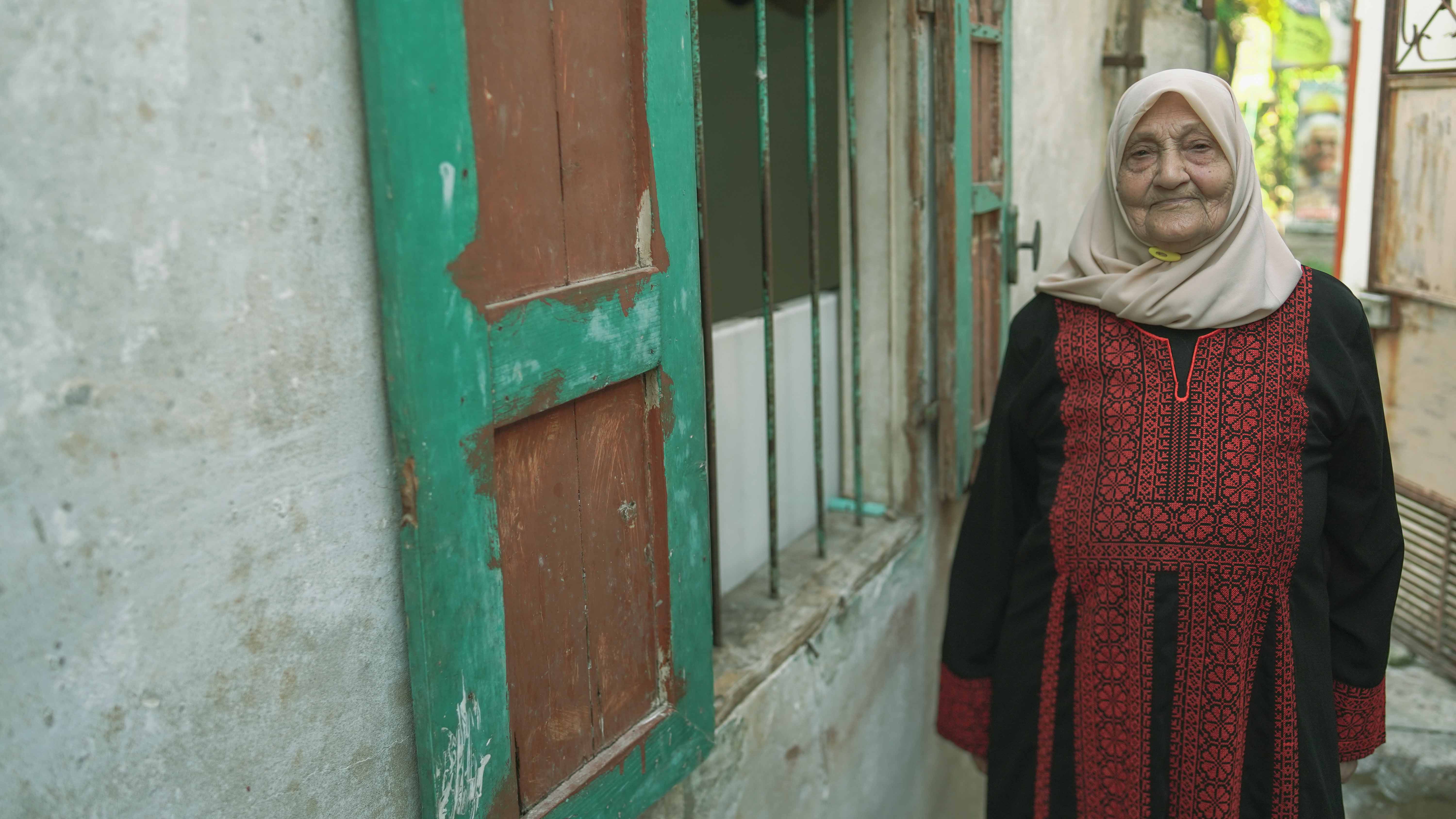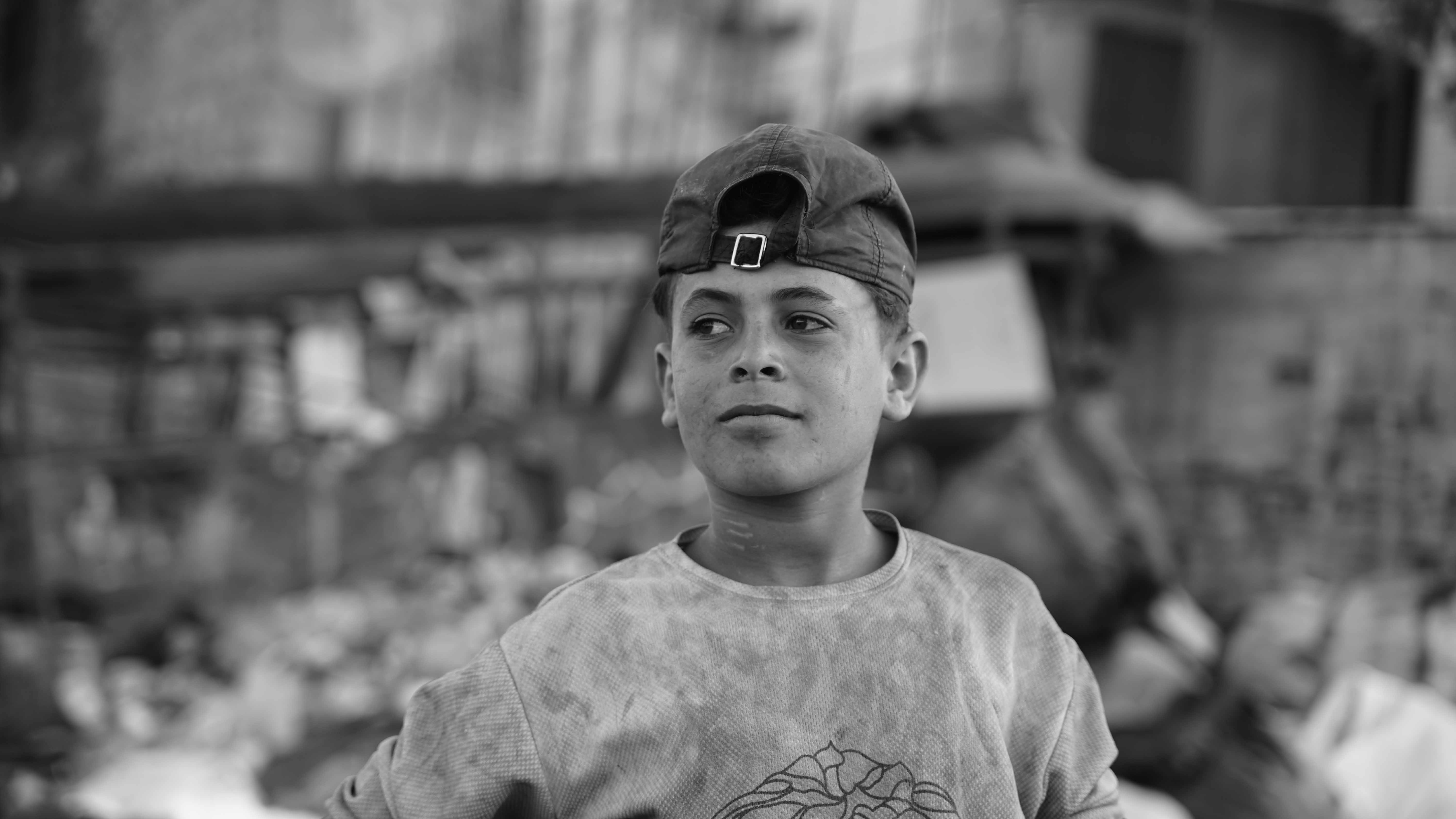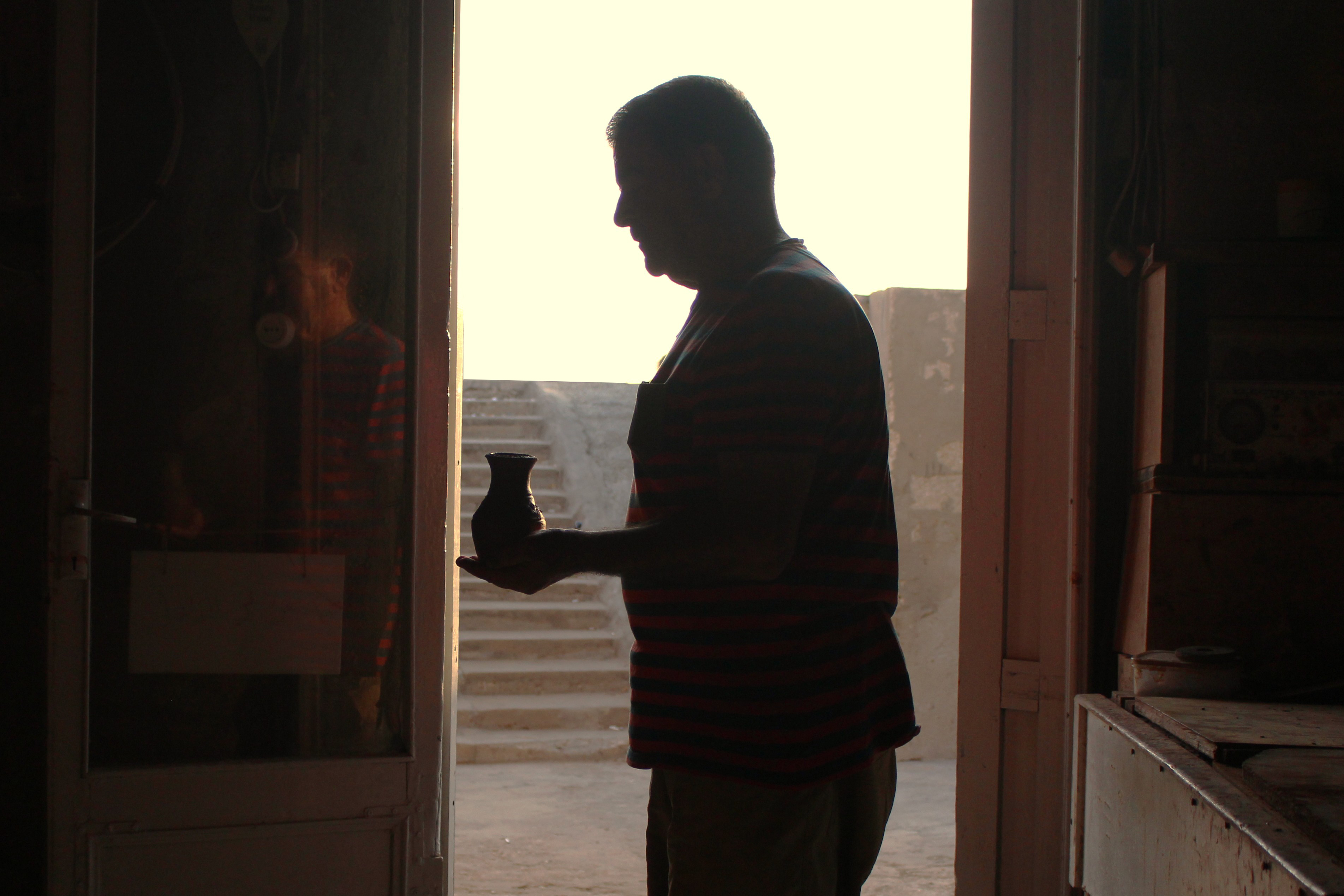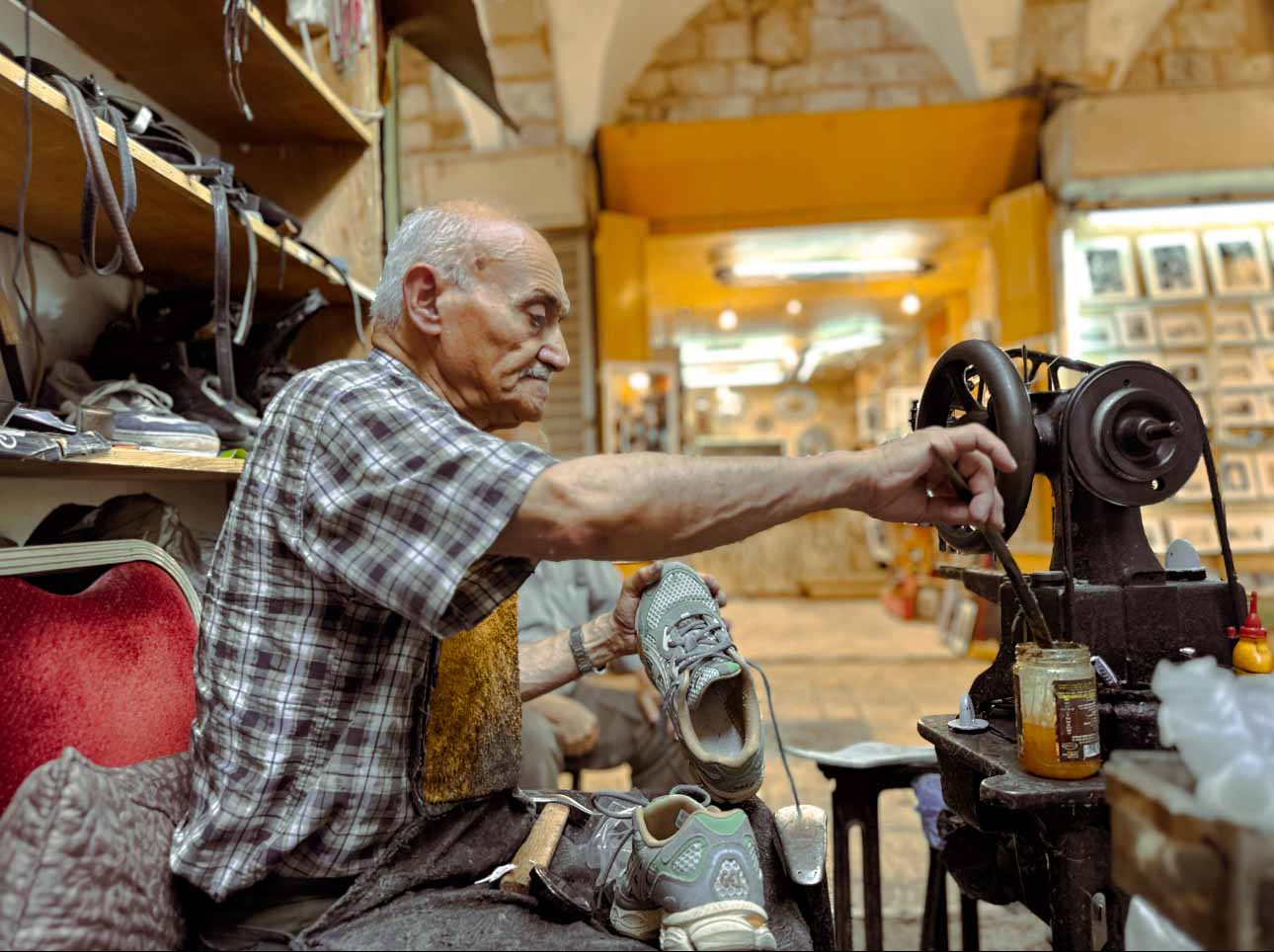In the Mieh Mieh refugee camp in southern Lebanon lives Umm Anwar, a refugee from the village of Miroun, in the district of Safad, Palestine. She was displaced from her village as a child, but her roots are deeper than the boundaries of the camp.

.jpg)
She didn’t study nursing at a university as she learned it out of necessity. She gave birth to seven children, five of whom died of illness. Her husband, a fighter, was often away from home for a long time, until he disappeared forever.
His absence was painful, and his presence was temporary. In his absence, Umm Anwar worked day and night as a nurse, caring for her children with love and patience.
.jpg)
In the yard of her small home, she planted an olive tree over thirty years ago, she said, “I couldn’t go back to Miroun... but this olive tree reminds me of my father. He was a farmer—he never left the land till the sunset.”
.jpg)
.jpg)
She added, “I brought this stone with me from under our house… from our land”
.jpg)
Today, all that remains of her family is her name, a tree, a stone, and a memory. Hajja Umm Anwar is not just a witness to the Nakba—she is living proof that roots may be uprooted from the land, but they can never be removed from the heart.
.jpg)





